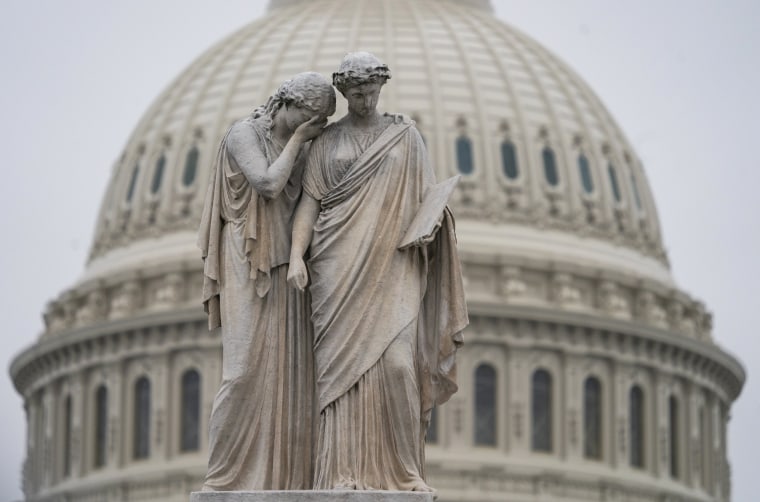Today was going to be the day that the National Archives turned over Donald Trump's materials to the bipartisan House committee investigating the Jan. 6 attack. The good news for the former president is that the documents will remain hidden a little longer. The bad news for the Republican is that this is a temporary reprieve — and he's still likely to lose the larger legal fight.
NBC News reported on the developments from late yesterday afternoon:
A federal appeals court Thursday granted former President Donald Trump's request to temporarily block the National Archives from turning over his White House records to the House committee investigating the Jan. 6 riot at the U.S. Capitol.... In a brief unsigned order with no noted dissents, a three-judge panel of the appeals court granted Trump "an administrative injunction" late Thursday and set arguments for Nov. 30.
The report added, "Courts often issue such injunctions to allow more time to consider the underlying issues. The order was not a ruling on whether Trump or the House committee has a stronger legal argument."
Let's quickly review how we arrived at this point. It was several weeks ago when the House select committee requested extensive materials from the White House, prompting Trump to demand absolute secrecy.
Traditionally, sitting presidents have shielded White House materials at the request of their predecessors. But not this time: President Joe Biden and his team concluded that there are "unique and extraordinary circumstances" surrounding the insurrectionist attack on the Capitol.
Trump and his team sued both the committee and the National Archives, which houses presidential records. This week, at least at the district court level, that lawsuit failed: On Tuesday, a federal judge ruled that the former president does not have the legal authority to block the release of materials. The Republican and his attorneys appealed that ruling and sought an injunction to prevent Congress from receiving the documents today.
The D.C. Circuit granted that injunction yesterday, but it was a temporary victory. In fact, Trump is still likely to lose. The three-judge appellate panel includes two jurists appointed by Barack Obama, and a third appointed by Biden. (One of the three forced Don McGahn to give congressional testimony despite Trump's "absolute immunity" claim.)
The trio wrote yesterday, "The purpose of this administrative injunction is to protect the court's jurisdiction to address appellant's claims of executive privilege and should not be construed in any way as a ruling on the merits."
So what happens now? The appeals court will hear arguments on Nov. 30. It will likely rule against Trump soon thereafter. In theory, the National Archives could then turn over the materials to Congress, but the former president and his team will likely appeal a defeat to the U.S. Supreme Court, which has previously ruled against the precise argument Trump is now making.
The former president's desperate fight for secrecy almost certainly won't work when all is said and done. The questions to consider in the interim is when Trump will exhaust his efforts and why he's fighting so hard to hide the truth from bipartisan congressional investigators.

